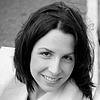Take a photo of a barcode or cover
A little weird, and slightly confusing at times (in that it's pretty much three separate stories for the majority of the book), but still very good and well written.
This is a wonderful, complex debut novel. The story takes place in 3 different time periods in 3 different Venices. This was not an easy, breezy read, but the payoff at the end was so worth it. Martin Seay writes beautiful sentences. This is a book full of flowery prose and without quotation marks, but throughout, I always knew who was speaking. I so enjoyed this long literary story!
Three parallel stories happening in 2003, 1958, and 1592, all in places named Venice.
In 2003, an ex-military policeman named Curtis is sent out to Las Vegas (to stay at the Venetian) by an ex-military friend to find Stanley Glass, an old gambling friend of his father's, who supposedly has a gambling debt coming due.
In 1958, a 15 year old juvenile delinquent calling himself Stanley Glass hitch hikes and bums his way from Brooklyn, NY to Venice Beach, CA to find the author of a mysterious and poetic book called The Mirror Thief, whose main character is a 16th century alchemist and doctor named Crivano.
In 1592, Vettor Crivano is in Venice, Italy plotting to smuggle glassmakers and mirror makers out of the city to take them to Constantinople to work for the Turks, treason punishable by death. Originally from Cyprus, he was captured in battle by Turks when he was a young man and taken away to become a janissary. He has been sent back on this mission to bring back glassmakers under the pretext of escaping from Constantinople with the remains of a Cypriot war hero who was known to have been skinned alive by the Turks.
The three stories are obviously connected, and it is part of the fun of this book to try to figure out what the connections are and what they mean. Each story is fully fleshed and engaging on its own. I'm still meditating on the sum of the parts, but this was a very enjoyable book.
In 2003, an ex-military policeman named Curtis is sent out to Las Vegas (to stay at the Venetian) by an ex-military friend to find Stanley Glass, an old gambling friend of his father's, who supposedly has a gambling debt coming due.
In 1958, a 15 year old juvenile delinquent calling himself Stanley Glass hitch hikes and bums his way from Brooklyn, NY to Venice Beach, CA to find the author of a mysterious and poetic book called The Mirror Thief, whose main character is a 16th century alchemist and doctor named Crivano.
In 1592, Vettor Crivano is in Venice, Italy plotting to smuggle glassmakers and mirror makers out of the city to take them to Constantinople to work for the Turks, treason punishable by death. Originally from Cyprus, he was captured in battle by Turks when he was a young man and taken away to become a janissary. He has been sent back on this mission to bring back glassmakers under the pretext of escaping from Constantinople with the remains of a Cypriot war hero who was known to have been skinned alive by the Turks.
The three stories are obviously connected, and it is part of the fun of this book to try to figure out what the connections are and what they mean. Each story is fully fleshed and engaging on its own. I'm still meditating on the sum of the parts, but this was a very enjoyable book.
Could not finish this book. The story didnt engage me and I found it a chore to read.
Well written, but also complicated. That wouldn't bother me, except that the plot(s), at least the way it was laid out, wasn't especially compelling.
Third part boring and difficult to follow. The whole lengthy endeavor did not seem worth it.
adventurous
dark
mysterious
reflective
sad
slow-paced
Plot or Character Driven:
A mix
Strong character development:
Yes
Loveable characters:
Yes
Diverse cast of characters:
Complicated
Flaws of characters a main focus:
Yes
A bit too slow for me, didn’t get invested until a third of the way through. Some interesting concepts and an intriguing writing style. I wish there were speech marks, and slightly less references to ablutions - but I guess that made it grittier?
“The moon's an arrant thief, And her pale fire she snatches from the sun.” - William Shakespeare
Does the mirror reveal ourselves, or merely limit the self to that which can be seen, that which already exists, thus destroying originality? Can we separate ourselves from the disappointing plane into the silvery alternative reflected in art? Can we even answer those? The Mirror Thief beautifully sets up these questions through three metaphorically interlocking narratives of Venice and the thieves within them. One, a Vegas noir with shadows of Ellroy and Delillo, the next a Bellow or Joycean take on life as a grifter in late 50s Venice Beach, and the final a less academic take on Umberto Eco's style set in 1500s Venice. Each of these having in someway to do with a book of poems called The Mirror Thief. If the meta fictional David Mitchell gears in your brain are turning you aren't wrong. (though the book is far more subtle in its themes than Cloud Atlas) Each of these stories in someway is a discussion of interpretation and originality w/r/t the questions above. Ultimately, the book shys away from answering these questions in favor of becoming a Ginsbergian howl at the systems that contain and keep us from being true to ourselves, or even prevent us from knowing ourselves at all.
The only think keeping me from giving this the full five stars is how much better Martin Seay is at being a literary writer than one of genre. The action and expository scenes, though here for a character reason I can't reveal, come off as clunky— greenhorn. The dissonance between "Patterns proliferate, as if in terror of blankness: geometric, vegetal, endlessly elaborated. Every surface seems vented, weightless, shot through with numberless holes." and "He stabbed a man through the breastbone." is great and Seay never fully resolves it. Thus leaving this loose baggy monster less a singular piece as fractured mirror. Deillo this ain't.
PS: The book, like DFW, is also steeped in Richard Rorty's philosophy of mirrors, but unlike DFW's later work doesn't really contend with them so much as accept them. So be warned if Rorty annoys you as he does so many philosophers.
Does the mirror reveal ourselves, or merely limit the self to that which can be seen, that which already exists, thus destroying originality? Can we separate ourselves from the disappointing plane into the silvery alternative reflected in art? Can we even answer those? The Mirror Thief beautifully sets up these questions through three metaphorically interlocking narratives of Venice and the thieves within them. One, a Vegas noir with shadows of Ellroy and Delillo, the next a Bellow or Joycean take on life as a grifter in late 50s Venice Beach, and the final a less academic take on Umberto Eco's style set in 1500s Venice. Each of these having in someway to do with a book of poems called The Mirror Thief. If the meta fictional David Mitchell gears in your brain are turning you aren't wrong. (though the book is far more subtle in its themes than Cloud Atlas) Each of these stories in someway is a discussion of interpretation and originality w/r/t the questions above. Ultimately, the book shys away from answering these questions in favor of becoming a Ginsbergian howl at the systems that contain and keep us from being true to ourselves, or even prevent us from knowing ourselves at all.
The only think keeping me from giving this the full five stars is how much better Martin Seay is at being a literary writer than one of genre. The action and expository scenes, though here for a character reason I can't reveal, come off as clunky— greenhorn. The dissonance between "Patterns proliferate, as if in terror of blankness: geometric, vegetal, endlessly elaborated. Every surface seems vented, weightless, shot through with numberless holes." and "He stabbed a man through the breastbone." is great and Seay never fully resolves it. Thus leaving this loose baggy monster less a singular piece as fractured mirror. Deillo this ain't.
PS: The book, like DFW, is also steeped in Richard Rorty's philosophy of mirrors, but unlike DFW's later work doesn't really contend with them so much as accept them. So be warned if Rorty annoys you as he does so many philosophers.
I'm giving this three because of the literary merits and the gorgeous writing, but the three interconnected stories never really connected for me. I found it tough to finish, despite the individual intrigues.
adventurous
challenging
dark
informative
mysterious
tense
slow-paced
Plot or Character Driven:
A mix
Strong character development:
Complicated
Loveable characters:
No
Diverse cast of characters:
Yes
Flaws of characters a main focus:
Complicated





